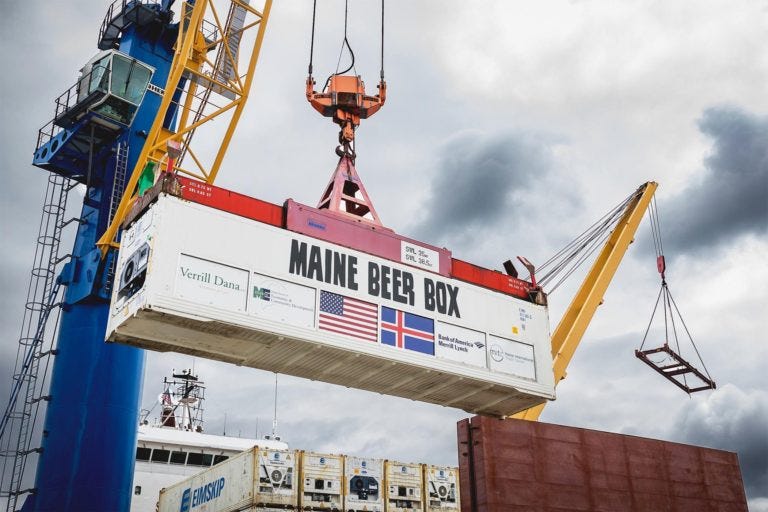Why Are There So Many Breweries in Maine?
Welcome to The Sunday Morning Post newsletter! Each week I write about economics and finance with a frequent focus on Maine. To get the articles in your inbox each Sunday morning, just click Subscribe below. Thanks for reading!
Why Are There So Many Breweries in Maine?
Lighthouses. Lobster. Beer? If supporters of Maine’s breweries have their way, craft beer could become as synonymous with the state as some of its more traditional images and industries. By last count, Maine has 156 active breweries, which on a per capita basis is the most of any state in the country, just barely edging out Vermont. And the number of breweries in Maine has surged over the past decade. Why is the craft beer scene in Maine so vibrant? And why are there so many breweries? I spoke with a number of participants, commentators, and advocates for the Maine beer industry this week to get their perspective on these questions. Raise a glass to Maine beer and let’s dig in.
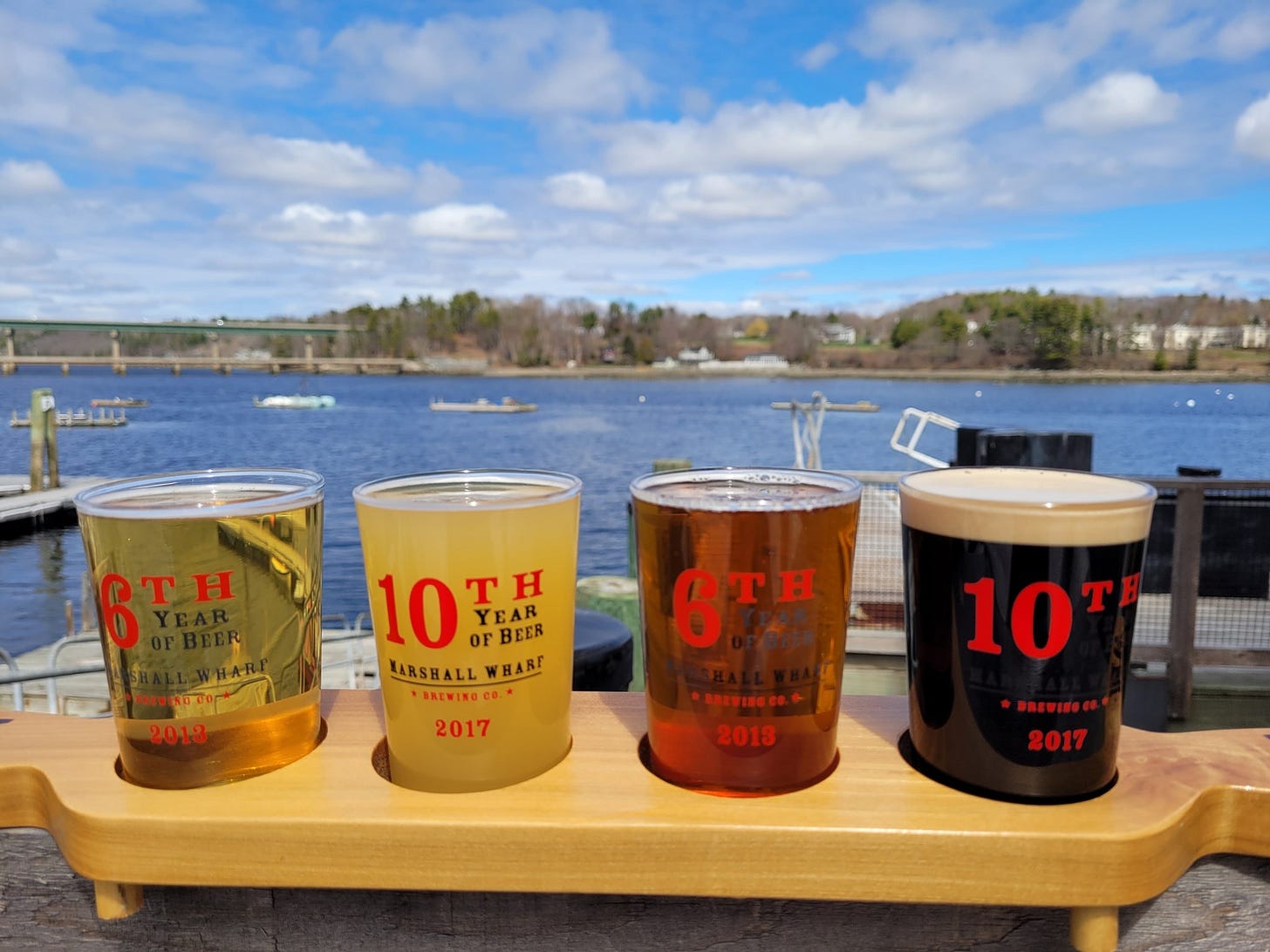
Legacy
Sean Sullivan, Executive Director of the Maine Brewers Guild, traces the origins of the recent surge in the Maine craft beer market back forty years to when a handful of individuals and friends jumpstarted the industry in Maine. According to Sean:
David Geary in the early 1980s started a craft brewery in Maine with help from a British guy by the name of Alan Pugsley and that was the first new brewery to open east of the Mississippi River since Prohibition ended. And so truly it was the start of a renaissance that I think gives Maine a rightful claim to the home of craft beer in the east.
There were others on the scene in Maine in the 1980s and 1990s, too, including a character named Alan Eames, whose obituary in the New York Times referred to him as “the Indiana Jones of Beer,” a nickname he had cultivated over many years as a “beer anthropologist.” Sean says:
Three Dollar Dewey’s was the bar that Alan founded as a way to share the knowledge about what he was looking for. Then you had a place like Great Lost Bear which was very early in this kind of craft beer renaissance. There’s all these stories about breweries trying to sell their first keg of beer to Great Lost Bear. You have this group of experts who were passionate and enthusiastic and willing to share their knowledge and expertise.
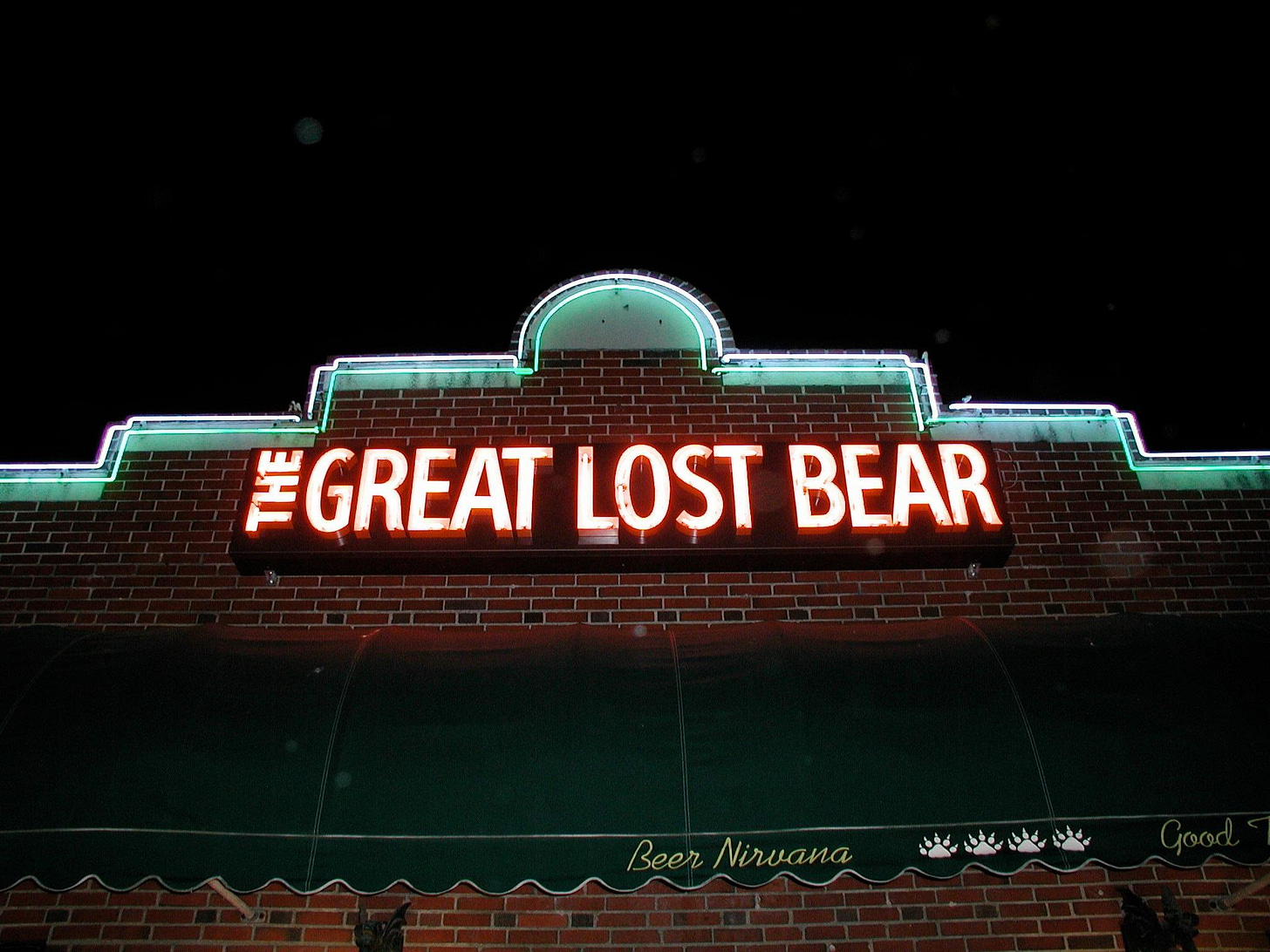
But for many years, it wasn’t easy for craft brewers to actually sell their beer directly to consumers here in Maine on their own premises. In fact, for decades after Prohibition ended including through the entirety of the 1980s, 1990s, and even the 2000s, it was nearly impossible. That all changed in 2011.
Legislation and logistics
Various sources put the number of breweries in Maine at approximately 34 at the beginning of the last decade. The number has surged over 350% in the ten years since. Carla Jean Lauter, a freelance craft beer writer who has been writing about Maine and Maine beer since 2007, points to legislative changes in the early 2010s as a catalyst for the boom. Prior to these changes, Maine beer could not be sold directly to consumers in breweries unless it was packaged, which meant there were no tasting rooms like we have today and no lingering around to sip a cold one at happy hour with coworkers, on a lazy weekend afternoon with family, or on a date night with a significant other. Carla notes:
For so long Maine breweries had very little on-premise presence other than maybe someone like Allagash showing off their tanks. The culture we have now of tasting rooms came out of a legislative change to allow direct sales to consumers. Once the rules loosened up Foundation and Maine Beer Company and all these folks completely redesigned their spaces to accommodate customers. They went ‘okay, let’s have people come in and try our beers.’ And that was a big deal because it changed Maine’s brewing scene from being an industrial production thing to a social space. And people would suddenly come in and hang out. And this type of establishment is really positive for small town economics and supporting the surrounding businesses.
Sean Sullivan echoed the sentiment, saying:
Prior to 2011, breweries weren’t allowed to sell their beer where they made it. When you think of all of those opportunities you’ve had since to meet a brewer, all those conversations, all those interactions weren’t really happening. Once they had that opportunity to sell the beer right where they made it…that was the catalyst for this latest phase of growth.
Carla Jean Lauter also points to the growth of mobile canning trucks starting around 2010 as a key factor in helping small operations expand their offerings. These trucks travel the state and take beer from producers and put it in cans right on the spot (for a fee). The breweries then sell the canned beer to their own customers. The trucks save the breweries the costs of developing their own canning infrastructure, which can be quite expensive to the point of being cost prohibitive to many small producers.

Sense of place
Maine beers are uniquely intertwined with the state in which they are brewed in the way that a beer from, say, Arkansas, might not be. Maine brewers are particularly adept at weaving a narrative into their products and marketing the imagery and essence of Maine with the beers themselves. Examples abound of breweries with Maine place-names in their titles along with specific beers that reference the waters, trees, and trails of Maine. In this way, Maine and its brewers exist in a symbiotic relationship in which the breweries are promoting Maine and the brand of Maine itself helps to sell beers.
The content is often hyperlocal. For example, one of my favorite beers is Geaghan’s Smiling Irish Bastard, which features an image of a 1950s Bangor police officer named Bernie Welch on the can. Either Officer Welch himself or his children and grandchildren have been known to practically everyone in Bangor. It’s a great beer, but the local imagery and history make it extra special.
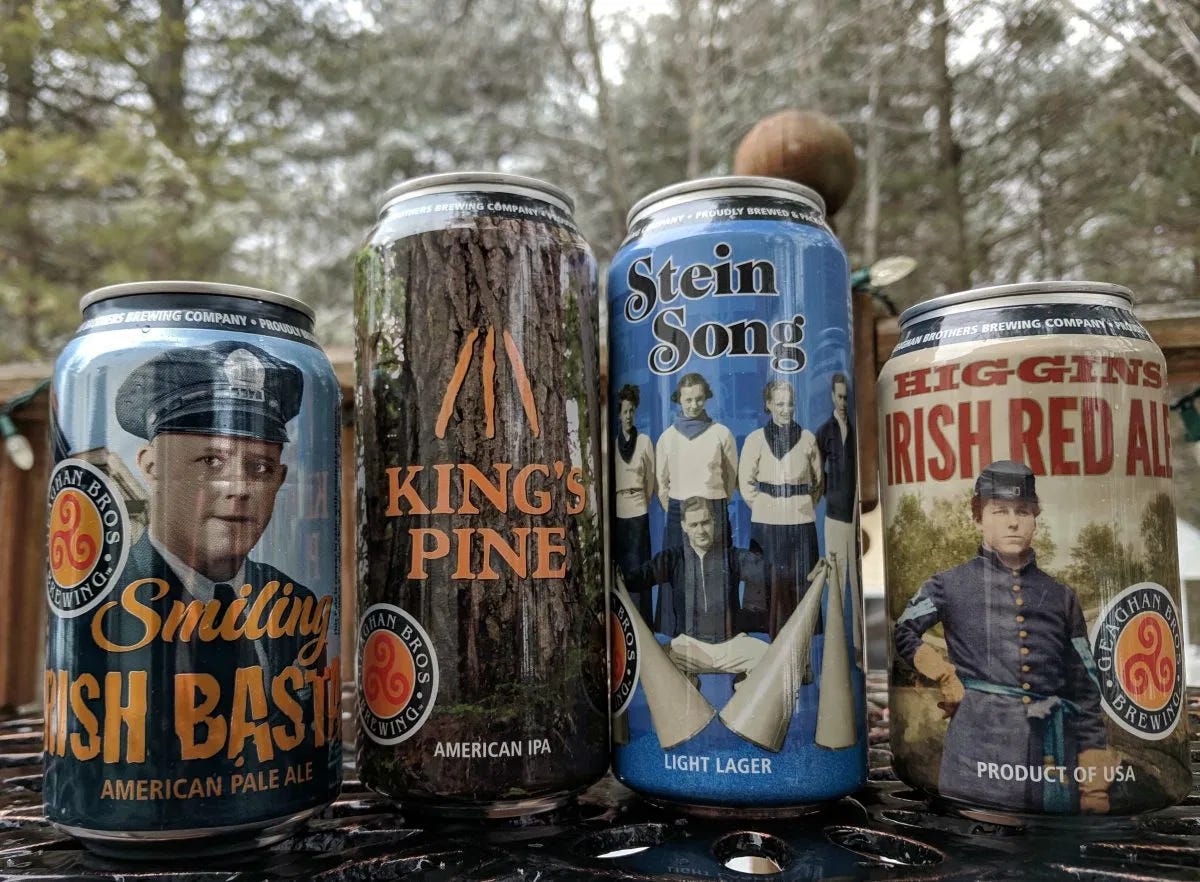
Authenticity
The weaving together of Maine with craft beer is done seamlessly in part because the Maine brand is seen as being so authentic. Ask someone from L.L. Bean how well “Maine” sells, for example; the company has long been one of the top outdoor retailers in the world in part by never straying too far from its image as a down-home seller of good, reliable, authentically made products inspired by the woods and waters of Maine.
Sean Sullivan says this is one reason why Maine craft beers are so beloved both here in Maine and, increasingly, beyond, saying, “When people come to Maine they are seeking authenticity and that connection to place that craft beer and our breweries and our brewers offer. I think it also speaks to the values of why locals and Mainers love this place.”
So many of the breweries in Maine were originally started or are run now by people who have a deep and abiding love for Maine and who have proactively chosen to make it work here. This authenticity is one of the secrets to the success and vibrancy of the industry. When asked why he chose Maine when he could be brewing beer just about anywhere, Alex Maffucci, President of Atlantic Brewing Company, said it was a no brainer. After moving away from Maine for college, Alex wanted to come back and invest in the community:
When I moved back here and my wife and I got married and were settling and wanted to start a family we couldn’t think of a better place to be. We’re right next to a beautiful national park. It’s safe. All of this and the weather and the activities in the summer make Bar Harbor very attractive both to live here and brew here.
This sentiment was echoed by every single person I spoke to this week. When asked why not brew beer in a more heavily populated area, Heather Furth of Orono Brewing Company, for example, said, “We love our lifestyle here. We love to be both in business and be able to spend a lot of time outdoors and live in a small community. We have clean water, which is very important for beer. And we have an inclusive brewing scene that supports one another. It’s a fun lifestyle.”
Many if not most brewers in Maine have local ties to the communities where they exist and their love of that city or town is, in fact, one of their primary motivating factors in being there.
On this point, Carla Jean Lauter believes in breweries as “third places.” It’s not home and it’s not work; it’s the ever-important third place. Dan Waldron, who along with his wife, Kathleen Dunckel, own Marshall Wharf Brewing Company in Belfast, says that not only is this third-place mentality key to their business, it was actually one of the primary motivating factors for why they acquired the brewery in 2020 when the business under its previous owners was in danger of closing and disappearing altogether. “The community needed this space,” Dan told me. “We couldn’t let it go away.”
Stories like this abound throughout Maine in which local people made specific decisions to invest in their communities in deliberate ways and grow them into the very types of cities and towns where they themselves want to live. Sean Sullivan traces the timing of this to a serendipitous alignment with the legislative changes that made it easier for breweries to sell directly to consumers:
Maine was desperate for a new narrative…even when I went to college here, it was still wallpapered bed and breakfasts. It wasn’t really cool here….but now seeing 20 and 30-somethings who want to come up to Maine for a weekend, that is new within the last ten years. No disrespect to people who have been here their whole lives and I have a lot of respect for restauranteurs who have been invested for so many years…but we desperately need a younger demographic. What are the things we can as a state glom onto for a new narrative on why you can come here? I think craft beer is part of that puzzle.
I can say from serving on the Bangor City Council from 2011-2020, we were always trying to think of ways to develop that elusive “cool factor.” “Vibrancy,” as a concept is hard to define, but third-spaces that are fun and quirky and welcoming to all are a big part of it. In fact, in 2016, James Fallows wrote a piece in The Atlantic in which he identified eleven common characteristics of successful cities. The last item on the list? Craft breweries. Fallows wrote:
One final marker, perhaps the most reliable: a city on the way back will have one or more craft breweries, and probably some small distilleries too…A town that has craft breweries also has a certain kind of entrepreneur, and a critical mass of mainly young (except for me) customers. You may think I’m joking, but just try to find an exception.
So key are breweries to local economic development that some cities and towns have even built strategies around recruiting them or supporting local entrepreneurs who want to start one. Spenser Ouellette, who is one of the multiple founders of Northern Maine Brewing Company in Caribou, told me that that their brewery was born out discussions among a local economic development committee on how to create jobs in Aroostook County. These efforts were bolstered by an energetic town manager in Caribou who believed that having a brewery would be key to the economic and social lifeblood of the community. Northern Maine Brewing Company opened in 2016 and has been so successfully embraced by the community that they are able to support both a brewery and a restaurant. (As an aside, when my wife and I ran the Caribou Half Marathon in 2019, you literally got a pint of Northern Maine Brewing Company beer once you made it across the finish line, which was great. We then went to the brewery later that evening for another round!)
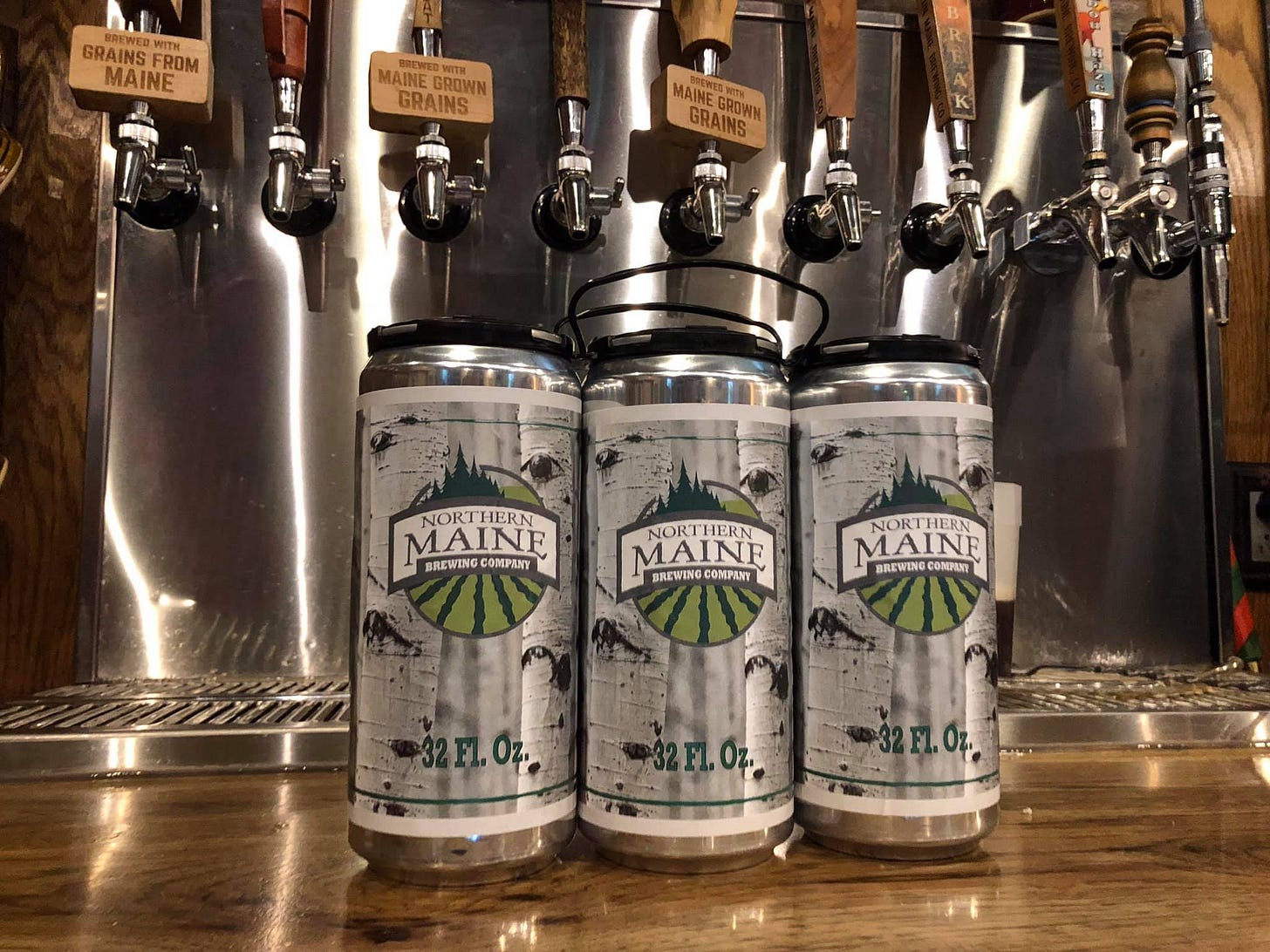
Spirit and skill
The James Fallows excerpt above references a “certain type of entrepreneur” that may be either involved in the craft beer industry or attracted to it. Maine has this type of person in spades from Kittery to Madawaska. Spenser Ouellette notes, “You’ve still got good work ethic in Maine. Everyone I talk to these days seems to want to start a business. Maine has a lot of go-getters who have ideas and want to make a run at it.”
According to Mainebiz, Maine has over 147,000 small businesses and is the best state in the northeast in which to start a business. Bangor and Portland are particularly known as great places to start businesses, with Lewiston and South Portland also making national lists.
Anecdotally, Maine is also a state where a lot of people have hobbies that can turn into businesses, sometimes unexpectedly. Perhaps nowhere is this more true than in the craft brewing industry. Bissell Brothers, for example, which is headquartered on Thompson’s Point in Portland, has become one of the most popular beer brands in the state. It was born out of Noah Bissell’s home brewing hobby combined with Peter Bissell’s interest in business and marketing. One hundred and fifty miles north of their Portland headquarters, Bissell Brothers now has a popular location of their brewery in the brothers’ home town of Milo in the heart of Piscataquis County.
Alex Maffucci of Atlantic Brewing Company also pointed out to me that Maine has a high level of skill and expertise among its industry members, noting, “Maine has developed the New England IPA very well and there are also all of these new sours and other creative beers out there. There are a lot of highly skilled brewers in Maine doing this.” Dan Waldron from Marshall Wharf said the same thing, noting, “Maine breweries are not just putting our product for the sake of putting it out there. It’s actually really good beer.”
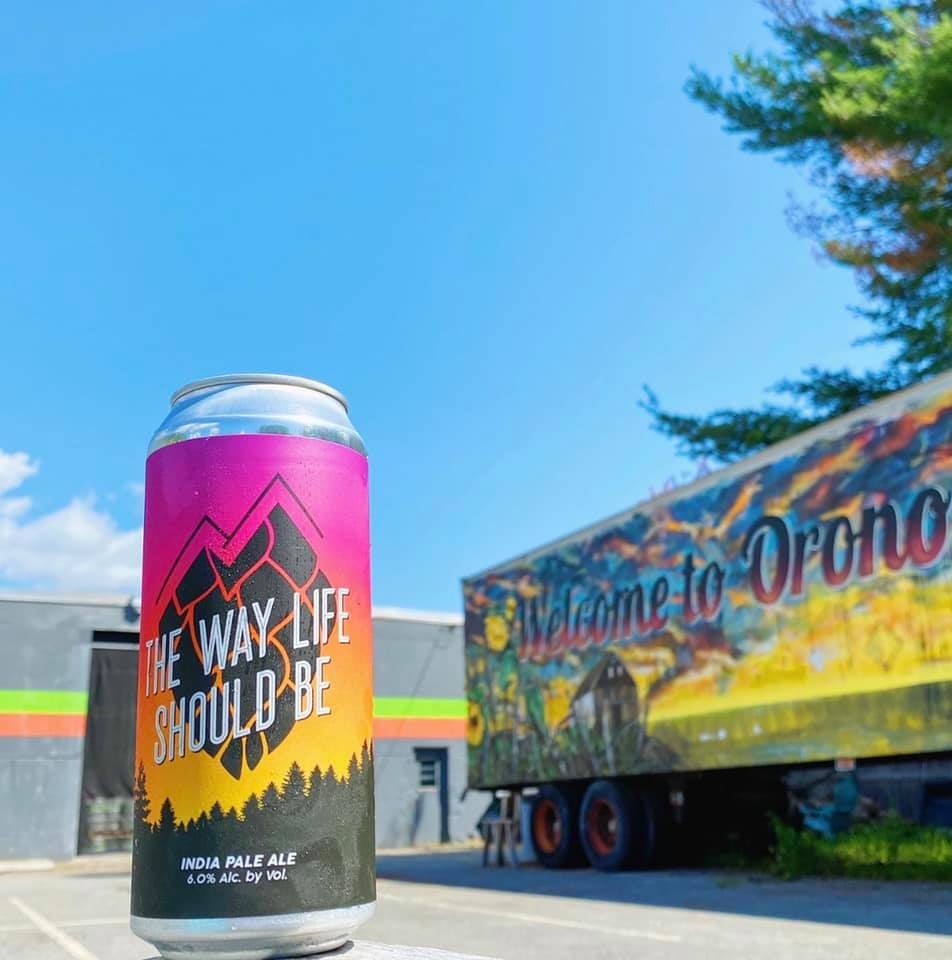
Collaboration
To a person, everyone I have talked to about the Maine craft beer industry makes a point of saying how collaborative, supportive, and welcoming it is. Although many of Maine’s breweries are sort of in competition with one another, it would be rare to ever hear a Maine craft brewer speak ill of another. There seems to be an authentic and real attitude that what is good for one is good for all. Heather Furth pointed out that because the Buds and Millers and Coors of the world still control so much of the industry, there is significant market share left for Maine craft breweries to capture. She credits this fact as one reason why the industry in Maine is so collaborate, saying, “No one really feels like they are stepping on anyone’s toes because we are all working together to grow.”
Matthew Haskell, owner of the Blaze Restaurant Group, which has restaurants in Bangor, Bar Harbor, and Camden, noted to me that they grew their business selling other people’s beer and that he is grateful for the Bissell’s of the world and others for making such great products. Haskell has also starting expanding his own brewing operations to Biddeford and even into Dover-Foxcroft and plans to sell his own Blaze Brewing beers right alongside other great Maine pours.
What comes next?
A question about the Maine beer industry that bubbles up every now and then is whether this is all sustainable. Can a state as modest in size as Maine support over 150 different craft breweries? Across the board from everyone I spoke to on this particular question this week the answer is a resounding yes.
Tim Lo, of Bangor Beer Co., points out that it is just such good economics to be able to sell your beer twenty feet away from where it is brewed, a sentiment echoed by nearly everyone else I spoke with this week. For this reason alone, Maine’s craft breweries are here to stay especially as tastes and preferences continue to evolve.
Sean Sullivan told me that five years ago the percentage of beer sales that were from smaller craft breweries was about 7% nationally and today is it closer to 18%. He sees that as a great opportunity for Maine brewers as there is still more than 80% of the market left to capture and the trend is going in the right direction. He added, “No one ever asks if there are too many antique shops in Maine and we probably have more of those per capita of any state in the country too!”
Breweries across Maine are also seeing more beer-related tourism, a sign of future growth for the industry. Alex Maffucci also serves as the treasurer for the Maine Brewers Guild and he says they are seeing beer tourism all over the place. Data suggests that one in five visitors to Maine is stopping in at a brewery at some point during their trip, and more and more people are visiting Maine specifically to visit a brewery. Alex says this is just fine for him and his company: 90% of Atlantic Brewing Company beer is consumed in Maine. The freshness is an advantage, he says, and a compelling reason why Maine beer is so good.
Across the board the people I spoke with this week also recognize the valuable role that the Maine Brewers Guild has played in all of this. The Maine Brewers Guild runs the popular Maine Beer Trail, which gives users a fun way to track their brewery visits while getting rewards and other special offers. (As an another aside, back in 2011 on my wife and I’s third date, we drove all the way from Bangor to Hallowell so she could meet up with her best friend so they could get stamps in their Maine Beer Trail passports at the Liberal Cup. I knew she was a keeper even then!).
The Maine Brewers Guild also operates the Maine Beer Box, which when I first heard the term I assumed was a small box the size of a six-pack that would offer a variety pack of Maine beers. No, actually the Maine Beer Box is a 40-foot refrigerated shipping container that travels around the world with 78 taps offering fresh Maine beers that shows up at craft beer festivals, parties, and other gatherings.
What’s clear at this point is the state of the Maine craft beer industry is strong and its influence is growing. The industry is recognized more and more by both federal and state leaders as being one of the state’s burgeoning economic engines and, increasingly, a top employer, which could help when legislative items come up at various levels of government.
So, why are there so many breweries in Maine?
There is no one factor that explains the surge in the Maine craft brewing industry in the last ten years. There has been a confluence of people, events, and circumstances that led to this boom from legislative and logistical changes, the uniqueness of the Maine brand that so many breweries have tapped into (no pun intended), and the uber-collaborative nature of the industry and its many participants. In some ways, the fact that it was so hard for breweries to sell directly to consumers for so long created pent-up demand that was unleashed in the early part of the 2010s and the industry has been riding that momentum ever since.
For what it’s worth, I started the research on this article believing that there was a bit of a bubble in the Maine brewing scene, but my opinion has changed after talking to so many people who are involved with Maine beer on a daily basis. My opinion now is that there are too many smart, engaging, and energetic people in the Maine craft beer scene to not believe that the industry has room to run. Some Maine breweries are doing it on a hyperlocal basis and others are expanding to other states step by step. All have potential and they each have a story to tell. And that is something to which we can all raise a glass.
Ben Sprague lives and works in Bangor, Maine as a V.P./Commercial Lending Officer for Damariscotta-based First National Bank. He can be reached at ben.sprague@thefirst.com or bsprague1@gmail.com. Follow Ben on Twitter, Facebook, or Instagram and subscribe to this weekly newsletter by clicking below.
Author’s Note and Bonus Content!
Special thanks to the many people who contributed their perspective and expertise for this article, particularly Sean Sullivan and Carla Jean Lauter. For bonus content, check out my podcast conversation with Sean Sullivan that helped inform this article by clicking here. You can also listen to a podcast episode from my archives featuring Abe and Heather Furth of Orono Brewing Company by clicking here.
Weekly Round-Up
Here are a few additional notes on today’s topic:
Tips from the State of Maine on starting a brewery!
Alexander MacDougall from the Bangor Daily News reports on the 100+ towns in Maine with some sort of restrictions on alcohol sales including 35 towns that are completely dry, a throwback to the vestiges of New England’s Puritan roots and Prohibition regulations.
My friend Abe Furth of Orono Brewing Company is running for the Maine State Senate! Follow and support him here!
The Maine Mag had a great feature about the new owners of Marshall Wharf Brewing Company this past March. Find it here.
If you enjoyed today’s newsletter, please consider sharing on social media or forwarding the email to others to help spread the word.
Disclaimer: the author works at First National Bank and has professional relationships with a number of the participants in this week’s newsletter. First National Bank is also an Allied Member of the Maine Brewers Guild.

Got news tips or story ideas? Email me at bsprague1@gmail.com.


